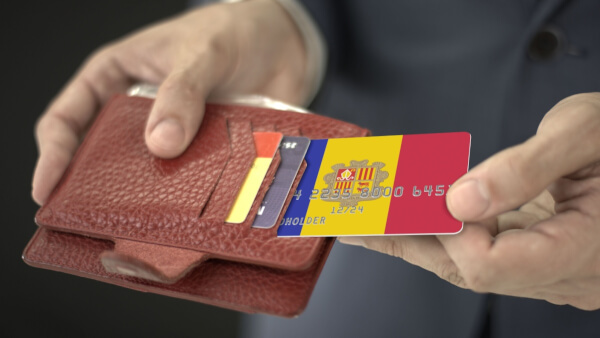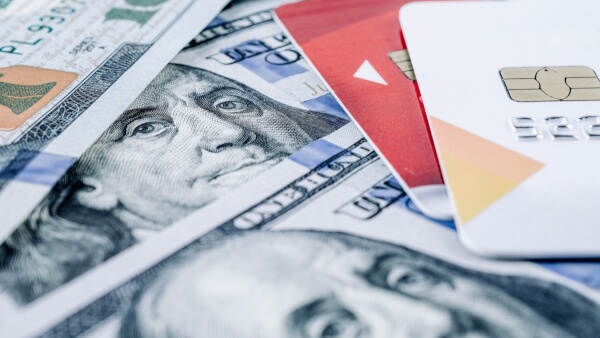Best savings accounts for non-UK residents
Read our roundup of the best savings accounts for non-UK residents, including options from Barclays, HSBC Expat, NatWest and Skipton International.

If you’re planning to move to Australia, you’re bound to feel nervous as well as excited. It’s a fantastic country, with a laid-back lifestyle, friendly people and beautiful natural scenery. But it’s also very far away from the UK, which can make moving a complicated business.
One of the first things you’ll need to look into is opening a bank account in Australia. This will be essential for paying bills and rent, receiving income and much more.
But how easy is it? Read on to find out everything you need to know, including info on costs, expat-friendly banks in Australia and the process of getting your new account set up.
We’ll also show you a fantastic alternative to a bank for managing your money in Australia. Open a Wise multi-currency account and you’ll be able to hold and manage your money in 40+ currencies, including GBP and AUD. It’s not a bank account but offers some similar features, and your money is safeguarded.
Moving to Australia and want to take your savings with you? With Wise, you can convert money or send secure and trackable large amount transfers to Australia and 140+ countries worldwide for low fees* and mid-market exchange rates. Plus, you’ll receive dedicated support and volume discounts when sending large amounts.
➡️ Learn more about the Wise account
The process of opening a bank account in Australia for non residents will vary depending on the bank, and the account you choose.
However, you should find the process fairly straightforward. It works in a similar way to the UK, where you apply online or in a branch, provide your details, verify your identity and wait for your new account to be opened.
One of the only stumbling blocks you may face as a non-resident is being asked for proof of address in Australia.¹ If you haven’t yet moved to the country, you probably won’t have this. In this case, you’ll either need to wait until you have a local address or just start the application process - completing it when you arrive.
You’ll also need more than one form of ID, as Australia has a strict system in place to combat financial fraud. Applicants for bank accounts need to provide ID documents worth 100 points, with primary ID (such as passports) being worth 70 and secondary ID worth fewer points.
It isn’t absolutely essential or even a legal requirement to have an Australian bank account. You might even be able to manage without one.
However, you might find that day-to-day life in Australia is a bit of a headache if you don’t have any kind of local or international current account.
You might find it difficult to pay bills, taxes, rent and other day-to-day expenses, along with receiving your salary if you’re working or your pension if you’re retired.
Buying a property becomes nearly impossible without an Aussie bank account.
And if you’re studying in Australia, receiving student loan payments could be an issue without a bank account.
Whether or not you can carry on using your UK account while moving to Australia all depends on your bank.
Major UK banks such as Barclays will not let you keep your UK current account while living overseas.² This is to do with post-Brexit regulations, which require banks to have separate authorisation in every EEA country they operate in.
There are a few exceptions to this. You may be able to keep your account if you’re only moving abroad for less than 6 months and plan to return to the UK, or if you’re a UK Crown employee.²
Not all UK banks take this position, however. International bank Santander says it will continue to service existing accounts when the holder moves abroad.³ So if you’re already a customer, you should in theory be able to continue using your account in Australia - although it could be worth checking with the bank first.
If you want to open a new account with Santander though, you’ll need to be a UK resident.³
There is potentially a major drawback to using your UK account in Australia. It will be denominated in GBP, but you’ll be spending and making payments in AUD. This means you could lose out to currency exchange fees and rates.
So, it could be a better idea to close down your UK account and get a fresh start with an Australian bank.
| 📚 Read more: Can you keep your UK bank account when moving abroad? |
|---|
Yes, there are no restrictions in Australia which prevent British citizens from opening a bank account. In fact, Australia is really welcoming to new arrivals, which is one of the reasons it’s a great country to move to.
In some cases, you may even be able to start your application online, before you’ve even moved to Australia.⁴
It is possible to open an Australian bank account from the UK before you arrive, especially through expat-friendly banks like Commonwealth Bank (CommBank).
It lets you apply online, filling in your details and uploading your ID documents. You just need to know your visa entry information (for your working holiday visa or skilled worker visa, for example) and what city you’ll be staying in when you arrive.⁴
Then when you move to Australia, you simply need to visit a CommBank branch to verify your ID in person and pick up your debit card.⁴
Australian banks do offer accounts to international students arriving in the country to study.
Some make it pretty easy too, such as CommBank which lets you open an Everyday Account up to 14 days before you arrive - and waives the monthly account fee for under 30s.⁵
Other banks such as Westpac offer a dedicated account for students, which also has no monthly fee if you’re under 30 or studying full-time.⁶
| 📚 Read more: How to get an Australian student visa: UK student’s guide |
|---|
When it comes to documentation, Australian banks use a points system.
There’s a given list of documents, and each is assigned a set number of points. In order to open a bank account, you’ll need to present a number of documents that add up to 100 points.⁷ This is a government-adopted personal identification system, designed to combat fraud.
It sounds confusing, but it’s actually very simple in practice. All you need to do is provide enough documents to hit the 100 points total. Here’s the list:⁷
You can only provide one document from each category (so for example, two documents from the 70 points list wouldn’t be accepted).
Examples of the accepted primary ID documents include:
On the list of accepted secondary documents worth 40 points are the following:
On the list of documents worth 35 points are the following:
Lastly, there are documents worth 25 points each:

If you’re starting your search for a an Australian bank account, here are a few of the major banks to consider:
The Australia and New Zealand Banking Group (ANZ) serves over 8.5 million retail and business customers worldwide.⁸ As you’d expect, it has a wide network of branches and ATMs across Australia.
One of the best everyday accounts for expats here is ANZ Plus, the bank’s new digital-only account. You can open it using just your smartphone, by downloading the ANZ Plus mobile app. And it has no monthly fees.⁹
There’s also the ANZ Access Advantage account, available to Australian residents, students and new arrivals too. It comes with an ANZ Visa debit card, internet banking and mobile banking through the ANZ app. There’s a monthly account fee, but this is waived for monthly deposits over a certain amount.¹⁰
The National Australian Bank (NAB) is one of the largest banks in Australia. It has around 8.5 million customers across Australia and worldwide.¹¹
The main account type on offer is the NAB Classic Banking account, which has no monthly fees and comes with a contactless visa debit card as standard. There are also no cash withdrawal fees at over 4,000 ATMs nationwide.¹²
You can apply for the Classic Banking account online in advance, then visit a branch with your ID documents when you arrive in Australia.¹
Commonwealth Bank, or CommBank, serves around 15.9 million customers worldwide.¹³
CommBank offers two main accounts for new arrivals to Australia.
The first is the Everyday Account Smart Access, a day-to-day current account offering fee-free ATM withdrawals, banking through the CommBank app and no monthly account fees for the first year. You can open the account up to 14 days before your arrival in Australia, and you don’t need a local address to apply.⁴
The second option is the Everyday Account Smart Access for Students. This offers nearly all of the same features, but with no monthly fees for as long as you’re studying.⁴
One of Australia’s oldest banks, Westpac has a sizable network of branches and ATMs across the country.
The main everyday account on offer here is Westpac Choice, available for everyone from students to new arrivals. It comes with a Debit Mastercard, mobile and internet banking, cashback and discounts too.¹⁴
There’s a monthly fee, but this is waived for the first year students and for customers depositing a certain amount each month.¹⁴
There are also a number of neobanks and alternatives available in Australia, such as:
Other alternatives worth looking into are providers like Wise, which doesn’t have a banking licence in Australia but offers some of the same features as a bank account. This includes sending and receiving money, international debit card, and a handy mobile app.
Just like in the UK, there are some fees and costs to look out for when banking in Australia.
These vary between banks, and you should always check the small print before signing up for an account. But here’s a roundup of what to expect:
| Transaction/fee type | Typical fee |
|---|---|
| Current account - monthly fee | $0 - $5 AUD¹⁰ |
| ATM cash withdrawal | Usually free (at your bank’s ATMs) |
| Getting a debit card | Usually free |
| Domestic payments (i.e. within Australia) | Usually free |
| International payments (i.e. to the UK from Australia) | $0-$30 AUD depending on currency¹⁵ |
The great thing about the Australian banking scene is that many current accounts are available for no monthly fee. These include the ANZ Plus account and the NAB Classic Banking account.
In some cases though, you’ll need to meet certain conditions to avoid the fee, such as being under 30, a full-time student or paying in a minimum amount per month.
And remember that most accounts will also have some additional fees, so it’s worth checking all the details out before signing up.
After reading this, you should have a better idea of how to open a bank account in Australia as a UK expat.
But there are also some great alternatives out there, which could be better for managing your money in multiple currencies or sending transfers back home to the UK.
Open a Wise account and you can convert, hold and send money in 40+ currencies (including AUD and GBP). Better still, you’ll get the mid-market exchange rate for your foreign currency transactions and only pay a small, transparent fee*.
| Here’s an overview of the main benefits of using Wise: |
|---|
|
**Investments in funds are never guaranteed and your capital can be at risk. In the UK, Interest and Stocks are provided by Wise Assets — this is the trading name of Wise Assets UK Ltd, a subsidiary of Wise. Wise Assets UK Ltd is authorised as an investment firm and regulated by the Financial Conduct Authority (FCA). Our FCA number is 839689. We do not give investment advice, and you may be subject to pay tax. If you're not sure, seek qualified advice. You can find more information about the funds on our website.
Sources used:
Sources last checked on date: 07-Aug-2025
*Please see terms of use and product availability for your region or visit Wise fees and pricing for the most up to date pricing and fee information.
This publication is provided for general information purposes and does not constitute legal, tax or other professional advice from Wise Payments Limited or its subsidiaries and its affiliates, and it is not intended as a substitute for obtaining advice from a financial advisor or any other professional.
We make no representations, warranties or guarantees, whether expressed or implied, that the content in the publication is accurate, complete or up to date.

Read our roundup of the best savings accounts for non-UK residents, including options from Barclays, HSBC Expat, NatWest and Skipton International.

Check out our essential guide on how to open a bank account online, including bank types, required documents, fees, and more.

Check out our essential guide on how to open a bank account in Jersey as a British expat, including documents, fees, banks and much more.

Check out our essential guide on how to open a bank account in Monaco as a British expat, including documents, fees, banks and much more.

Check out our essential guide on how to open a bank account in Andorra as a British expat, including documents, fees, banks and much more.

Read our rundown of the best Nationwide USD account alternatives available in the UK, including HSBC, Lloyds, Wise, Barclays, Revolut and more.